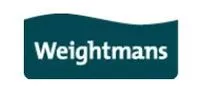New consultation on the UK Government's product safety regulatory framework raises questions and addresses five keys areas.
Back in November 2021 we advised on the Government's response to its March 2021 call for evidence into the UK's product safety regulatory framework and whether it was fit for the 21st Century.
The response to that call for evidence made it clear that radical reform was required to ensure the UK's product liability framework was adaptable in a rapidly moving marketplace and acknowledged the impact of new technologies such as AI, online marketplaces and the ESG agenda.
The new Consultation ("the Consultation"), which was launched on 2 August 2023, is entitled Smarter Regulation: UK Product Safety Review and forms part of the Government's Smarter Regulation programme of regulatory reform. This programme was announced in May. The Government indicated that smarter regulation was about improving regulation across the board, to ensure it is as clear as it can be and only used when necessary and proportionate to do so. The Government is keen to reduce the burden on business which smarter reform should do.
The Consultation seeks to identify a new framework that will be responsive to the challenges of the future, that is global in nature and addresses directly potential hazards and harms. It is made clear that the new framework must work well for both consumers (the Consultation refers to being committed to ensuring consumers remain protected) and business (and so to encourage innovation and growth).
The Consultation is clear that there are no quick fixes and a product safety framework that has been built up over decades and involves a mixture of legislation, technical standards and guidance cannot be changed overnight.
The Consultation addresses 5 keys areas
Bringing products to the market
- are there any specific products where action with the current product safety framework could be taken to reduce business burden, encourage innovation and/or increase consumer choice without compromising safety? Could there be a potential categorisation of products by hazard, which is acknowledging that some products are more potentially more hazardous than others and perhaps that is where focus should be centred?
- emergency derogation so that essential products required in times of national emergency (pandemics for example) can go through a swifter regulatory process to reach the market quickly whilst still maintaining high and proportionate safety standards. With an eye to modernisation of processes, there is reference to potential voluntary e-labelling.
Online supply chains
- the Consultation refers to the challenging issue of the sale of unsafe and non-compliant products through online supply chains. Without doubt this is a global challenge and when you study the Office of Product Safety & Standards ("OPSS") website, the majority of recalls relate to goods sold online.
- should there be a clear definition of online marketplace and if a business falls into that definition there will be specific duties owed?
- could online marketplaces have specific duties to collect and verify information about sellers of high-risk products and monitoring their marketplaces for products which may not be legitimate products?
- the Consultation refers to the development and improvement of data sharing between regulators and online marketplaces. Should there be clear consumer-facing information online alongside products advertised for sale?
Compliance and enforcement
- should the leadership and coordination role of the OPSS should be enhanced? The Consultation proposes a new legal data gateway for data to be shared across key operators (trading standards, border force authorities as examples) and would include data on manufacturers, incidents, investigations and test reports.
- there is a proposal for a single point of contact for businesses to notify for product safety recalls, namely the OPSS.
- consideration of consolidating and aligning existing enforcement legislation to ensure consistency and full ability to enforce.
- also, there is mention of the introduction of new enforcement powers to include issuing improvement notices and civil monetary penalties (the latter of which is currently not available, only the application of fines after prosecution in court).
- review of the civil product liability regime currently set out in the Consumer Protection Act 1987 by reference to areas where is it currently unclear or does not provide redress due to changes in 'products', particularly technology developments.
Across all the above there are 23 questions posed. This is a significant consultation addressing many areas of product law and safety. It will be key in shaping future reforms of product safety with a view to the UK developing a modern and adaptable product safety framework. The Consultation cuts across a myriad of stakeholders, sectors and businesses, as well as consumer groups and closes on 24 October 2023.
UKCA or CE markings?
Post Brexit, UK businesses selling goods in the UK were to display a UKCA mark on products in place of the CE mark used for goods placed on the EU market. The time for businesses to comply with the use of the UKCA marking was extended several times with the planned compulsory use extended to the beginning of 2025.
The Government has now effectively announced an indefinite postponement of the compulsory use of the UKCA mark by announcing that businesses can use either the UKCA or the CE mark on goods sold in the UK to show that their goods conform to the appropriate standards. This postponement does not apply to medical devices and construction products.
For those businesses who were struggling to understand or comply with the new regime, this will be a welcome announcement. It will be met with frustration by those businesses who have already expended significant time and money to date in getting their products appropriately marked with the UKCA label. It does however give certainty to all businesses.
The content of this article is intended to provide a general guide to the subject matter. Specialist advice should be sought about your specific circumstances.


